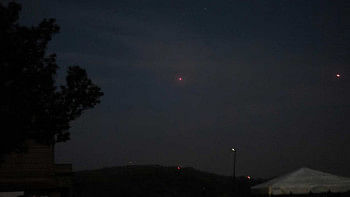Peace talks with NSCN end without accord
Two weeks of breakthrough talks between New Delhi and ethnic Naga separatists ended with mutual statements against violence but little tangible progress towards resolving India's longest-running insurgency.
The talks closed Thursday with pledges to hold more talks -- and angry denunciations from separatists and pro-India forces alike who see a potential threat in a peace deal.
More than 25,000 people have died in Nagaland, a hilly state bordering Myanmar that is about half the size of Belgium, in incessant fighting since India's independence from Britain in 1947.
The leaders of the rebel National Socialist Council of Nagaland (NSCN-IM) came to India on January 9 from their Amsterdam base for the first time in more than three decades. In heavy symbolism, they travelled on Indian passports and met with Prime Minister Atal Behari Vajpayee.
In a joint statement Thursday with Indian negotiators, NSCN-IM leaders Isak Chishi Swu and Thuingaleng Muivah agreed to resume talks within two months and "to maintain a peaceful and violence-free environment until then."
But it was more a declaration of goodwill than a policy shift, as the NSCN-IM has been in a ceasefire with the Indian government since 1997.
The statement shed no light on any progress over the NSCN-IM's key demand, the "reunification" of some 1.6 million ethnic Nagas scattered across India's northeast, including in states other than Nagaland.
"I don't see any evidence of either party to the negotiations having shifted its stance, at least publicly," said Ajai Sahni, executive director of the Institute of Conflict Management in New Delhi.

 For all latest news, follow The Daily Star's Google News channel.
For all latest news, follow The Daily Star's Google News channel. 



Comments